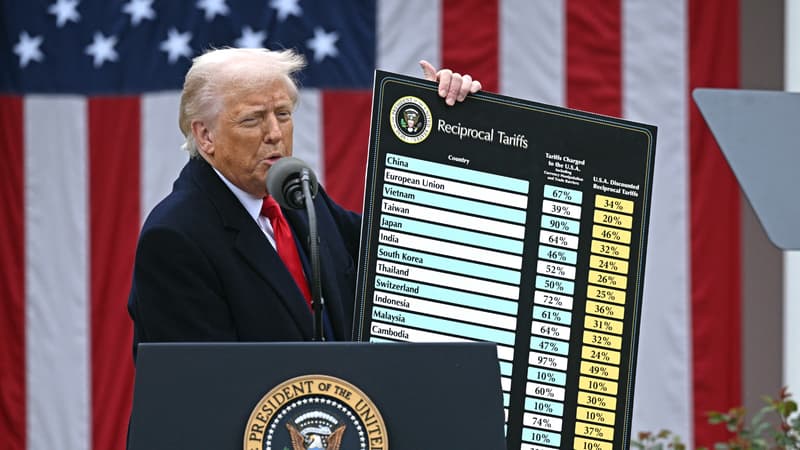It is a camoufla of the customs policy of Donald Trump. The decision of the United States Court on International Trade (ICT) to block most customs duties imposed by Donald Trump from his return to the White House will be followed by consequences whose effects have not yet been determined, according to experts.
Although the Court of Appeals suspends temporarily, the time it pronounces on merits, the decision occurs to make the issue of presidential powers.
What customs duties in question by decision?
The court did not rule on all the rights implemented since the beginning of Donald Trump’s second term. He had to determine if the US president was authorized to act and recharge indiscriminately without the previous agreement of the Congress.
The customs duties imposed by the White House referred to the countries that do not fight sufficiently, according to Donald Trump, against the traffic of fentanyl to the United States, or 25% imposed on Canadian and Mexican products, if they are not imported as part of the Canada-Mexico (Aceum), and 20% of Chinese products. These surcharges were added to pre -existing customs tasks.
But the main impact concerns that have “reciprocal” customs tasks, announced on April 2 by Donald Trump, then largely suspended three days later for 90 days, the time to carry out trade negotiations. A 10% floor rate remained applied to all products that enter the country, the surcharge considered illegal by the court.
On the other hand, other surcharges are not affected: those aimed at specific activity sectors, such as steel and aluminum or automotive. The latter were imposed through other systems, including section 232, provided for in the context of a commercial law of 1962 and that allows the president to act in case of national security risk.
How can the United States government react?
His first reaction was to appeal the decision, also urgently asking for his suspension, while the Court of Appeal is pronounced in the merits. An application understood but does not argue the final decision on customs tasks.
In all cases, the Supreme Court must have the last word, which should create jurisprudence on a highly constitutional issue: the limits of the Executive Power in terms of commercial policy and taxes.
However, the safest means to guarantee the sustainability of customs duties would be to go through a law approved by Congress, which would take longer and are not guaranteed: Republicans have a small majority in the House of Representatives and many of them do not see the customs tasks of a good eye.
In the immediate future, section 122, a provision provided by another commercial law (1974), would allow to impose up to 15% of customs duties for a period of 150 maximum days without a previous agreement of the Congress, which could allow Donald Trump to maintain pressure on commercial partners to obtain agreements.
Section 338, provided by a 1930 law, could allow Donald Trump to justify customs tasks through commercial discrimination practices by other countries.
What impact on the American and global economy?
According to EY’s chief economist, Gregory Daco, if a large part of Donald Trump’s customs tariffs are actually suspended, the average effective rate will increase to 4.6% in the products imported to the United States. Capital Economics estimates it at 6.5%, against around 15% before the first instance decision.
The fact is that the impact of customs tasks is already real, estimated in X, economist’s chef KPMG, Diane Swonk, because “supplies alterations were created” while “political uncertainty has been strengthened”, an essential factor already causes a “mixture of paralysis and panic.”
Even if the end of the surcharge would be “good news for the business world, companies will surely inform their investments while waiting for a clear result,” said HFE head Carl Weinberg.
Source: BFM TV


